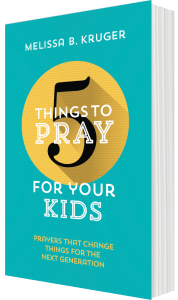Seasons filled with challenges of various kinds are inevitable. But that shouldn’t leave us discouraged or even full of fear when these seasons come. As believers, you and I can hang onto the promises of God’s Word.
Here are three passages you can meditate on when the challenges of life come your way.
1) Psalm 91:11-13
For he will command his angels concerning you to guard you in all your ways; they will lift you up in their hands, so that you will not strike your foot against a stone. You will tread on the lion and the cobra; you will trample the great lion and the serpent.
Psalm 91 is a promise of protection, but it’s a promise of victory too. The Messiah will trample the serpent. Do you hear Genesis? God speaking to the Serpent: I will put enmity between you and the woman, between your seed and hers, he will crush your head, you will bruise his heel. That’s Jesus.
Psalm 91 is a psalm of comfort to us, because it tells us of Christ’s victory over Satan, not just the cross; his resurrection proclaims his victory too. We can take refuge in his finished work. We don’t have to bend to the enemy, we can rest in the fact that Christ has won. Not for himself, but for us.
As you read Psalm 91 take refuge in the Lord, He’s done it, and He’ll continue to protect us from the enemy.
2) 2 Timothy 1:7
For the Spirit God gave us does not make us timid, but gives us power, love and self-discipline.
There are different kinds of fear. The outbreak of a virus, the loss of a job, broken relationships, and even loneliness. The Apostle Paul is telling us that the Lord has not given us a spirit of terror or a cowardly spirit.
He’s not given us a spirit that shrinks back in the face of fear. The Lord hasn’t given us a spirit of panic, a spirit that runs and hides, a spirit that leaves others to their own demise. Jesus entered our sick and dying world in order to save it.
This is the Spirit the Lord has given us. By the power of the Spirit, Christians stand firm; we can move toward the panicked. We can glorify our Lord by turning to him in hope and prayer. He’s given us a spirit of power, a spirit of love, a spirit of sobriety so we can remain steadfast and love our neighbors as he calls us to love.
As you meditate on this verse, ask for the Lord to grow and strengthen you in spite of your fears.
3) ROMANS 8:38-39
For I am convinced that neither death nor life, neither angels nor demons, neither the present nor the future, nor any powers, neither height nor depth, nor anything else in all creation, will be able to separate us from the love of God that is in Christ Jesus our Lord.
Do you believe these words? It’s easy to carry these words in our minds. It’s a lot harder to believe them in our hearts and actions. This great promise is something we all need to cling to, and not just because a virus is spreading throughout the globe. This is good news to us in any circumstance!
We have the promise: nothing can separate us from the Lord’s love. Nothing can separate us, not disease or sickness or death. Not even our sin or the enemy. Nothing can come between us and the Lord, because the Lord takes care of His own.
May this passage lead you to the Lord’s sovereign care. Christ alone saves and Christ alone protects.


 Kara writes beautifully about leaning into Jesus as she suffers. Her blog
Kara writes beautifully about leaning into Jesus as she suffers. Her blog  “I hunt down the grace, the peace, the source of what true living really is. It’s not the absence of this pain, it’s not the presence of normal. It’s not the ability and strength that I covet so desperately. It’s Jesus.”
“I hunt down the grace, the peace, the source of what true living really is. It’s not the absence of this pain, it’s not the presence of normal. It’s not the ability and strength that I covet so desperately. It’s Jesus.”